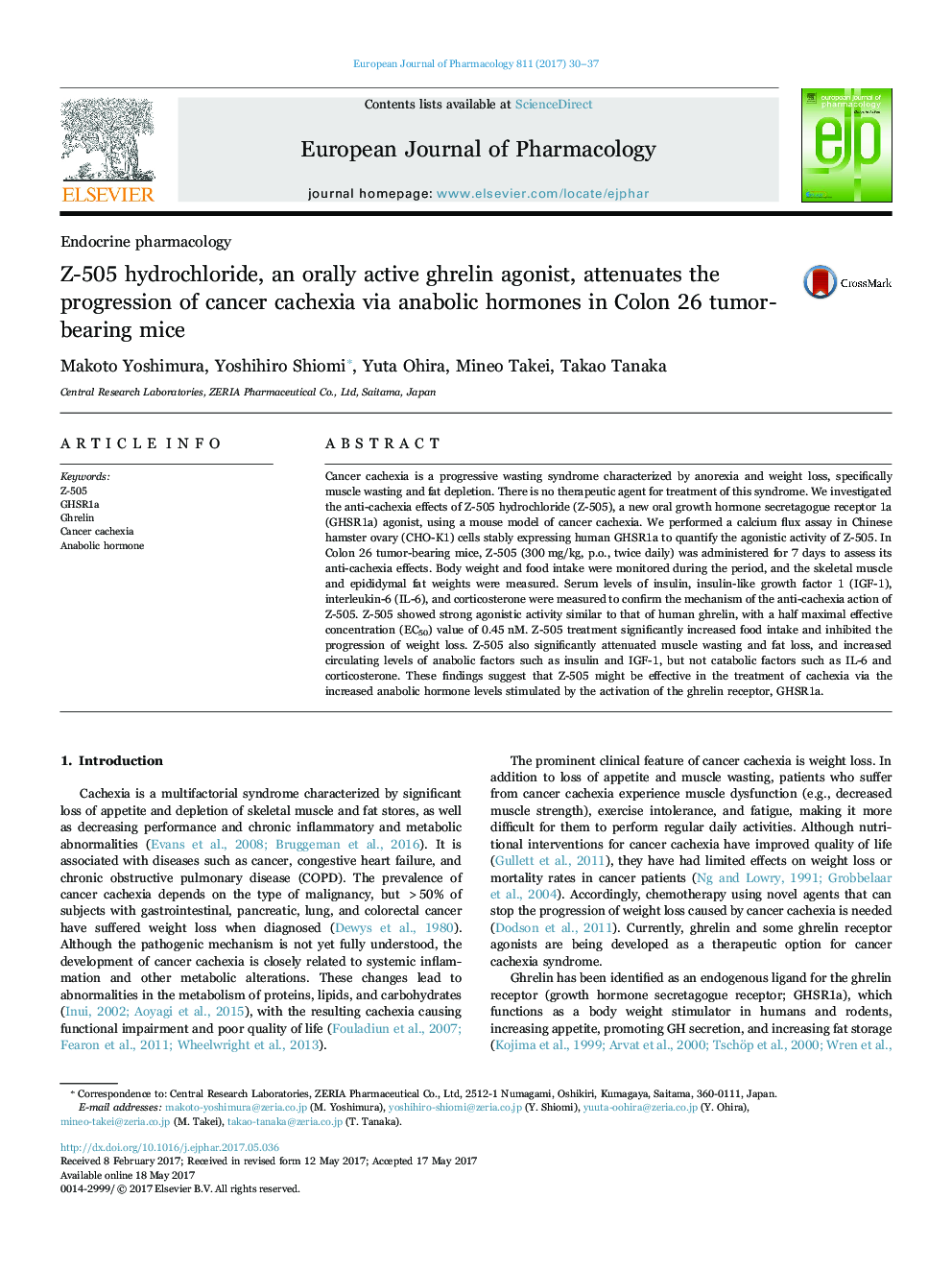| Article ID | Journal | Published Year | Pages | File Type |
|---|---|---|---|---|
| 5554464 | European Journal of Pharmacology | 2017 | 8 Pages |
Cancer cachexia is a progressive wasting syndrome characterized by anorexia and weight loss, specifically muscle wasting and fat depletion. There is no therapeutic agent for treatment of this syndrome. We investigated the anti-cachexia effects of Z-505 hydrochloride (Z-505), a new oral growth hormone secretagogue receptor 1a (GHSR1a) agonist, using a mouse model of cancer cachexia. We performed a calcium flux assay in Chinese hamster ovary (CHO-K1) cells stably expressing human GHSR1a to quantify the agonistic activity of Z-505. In Colon 26 tumor-bearing mice, Z-505 (300Â mg/kg, p.o., twice daily) was administered for 7 days to assess its anti-cachexia effects. Body weight and food intake were monitored during the period, and the skeletal muscle and epididymal fat weights were measured. Serum levels of insulin, insulin-like growth factor 1 (IGF-1), interleukin-6 (IL-6), and corticosterone were measured to confirm the mechanism of the anti-cachexia action of Z-505. Z-505 showed strong agonistic activity similar to that of human ghrelin, with a half maximal effective concentration (EC50) value of 0.45Â nM. Z-505 treatment significantly increased food intake and inhibited the progression of weight loss. Z-505 also significantly attenuated muscle wasting and fat loss, and increased circulating levels of anabolic factors such as insulin and IGF-1, but not catabolic factors such as IL-6 and corticosterone. These findings suggest that Z-505 might be effective in the treatment of cachexia via the increased anabolic hormone levels stimulated by the activation of the ghrelin receptor, GHSR1a.
